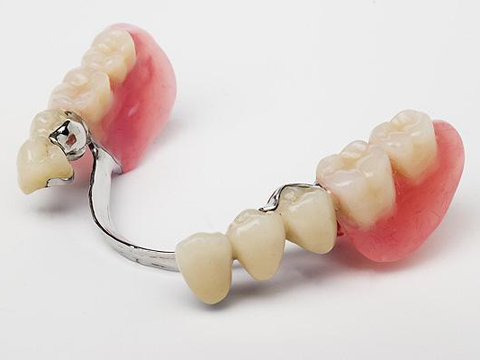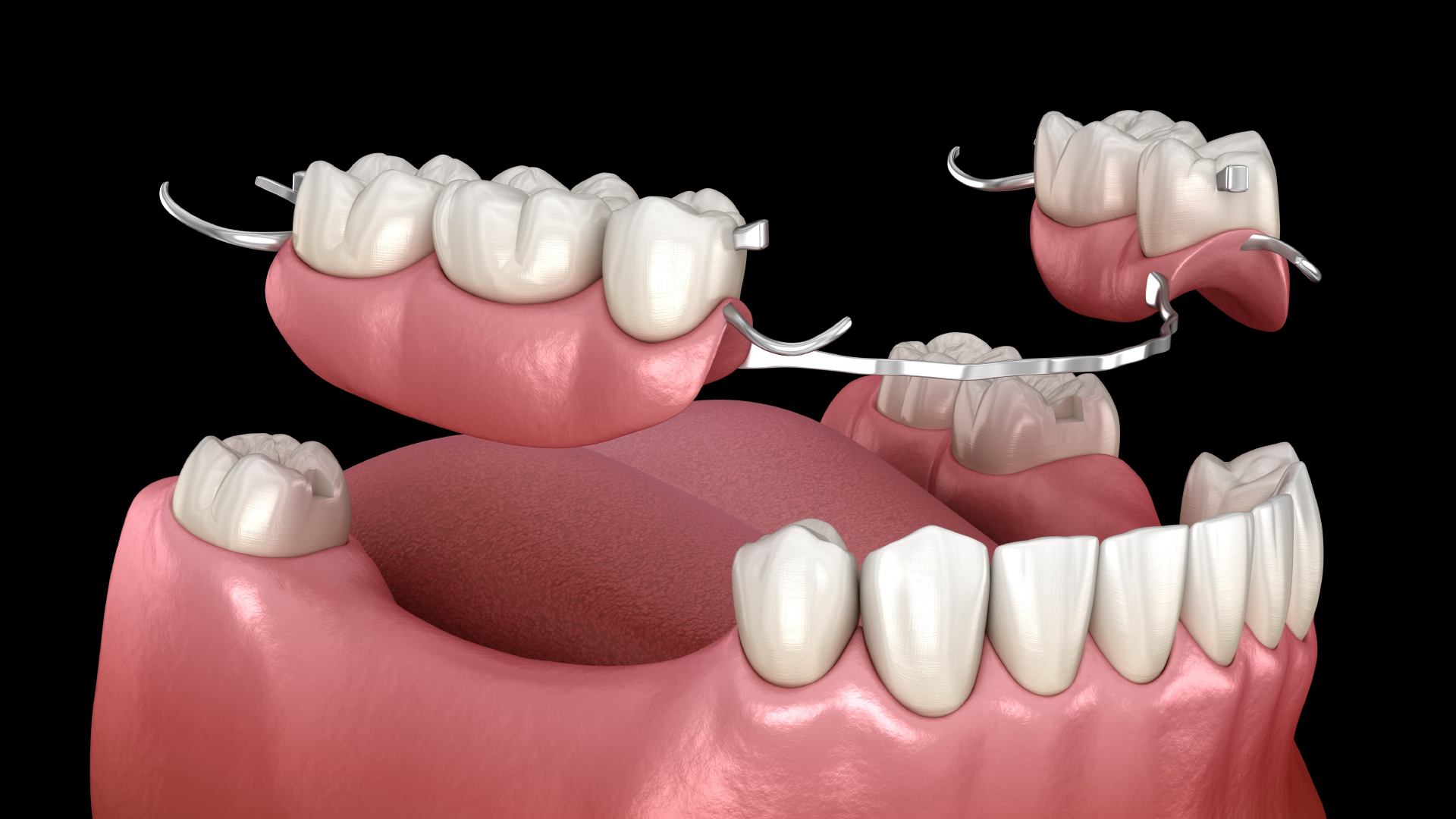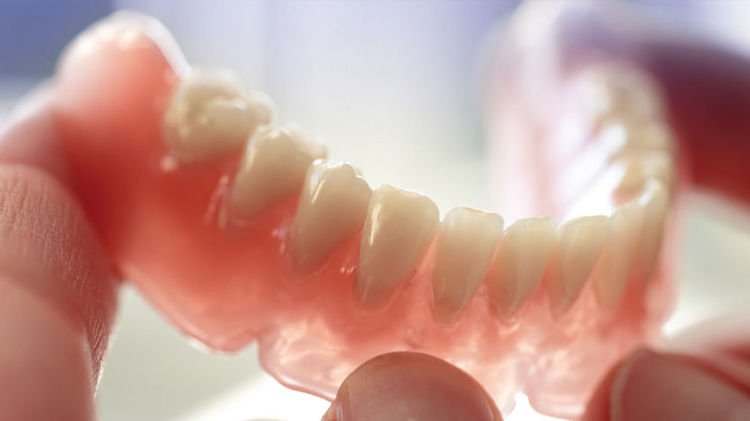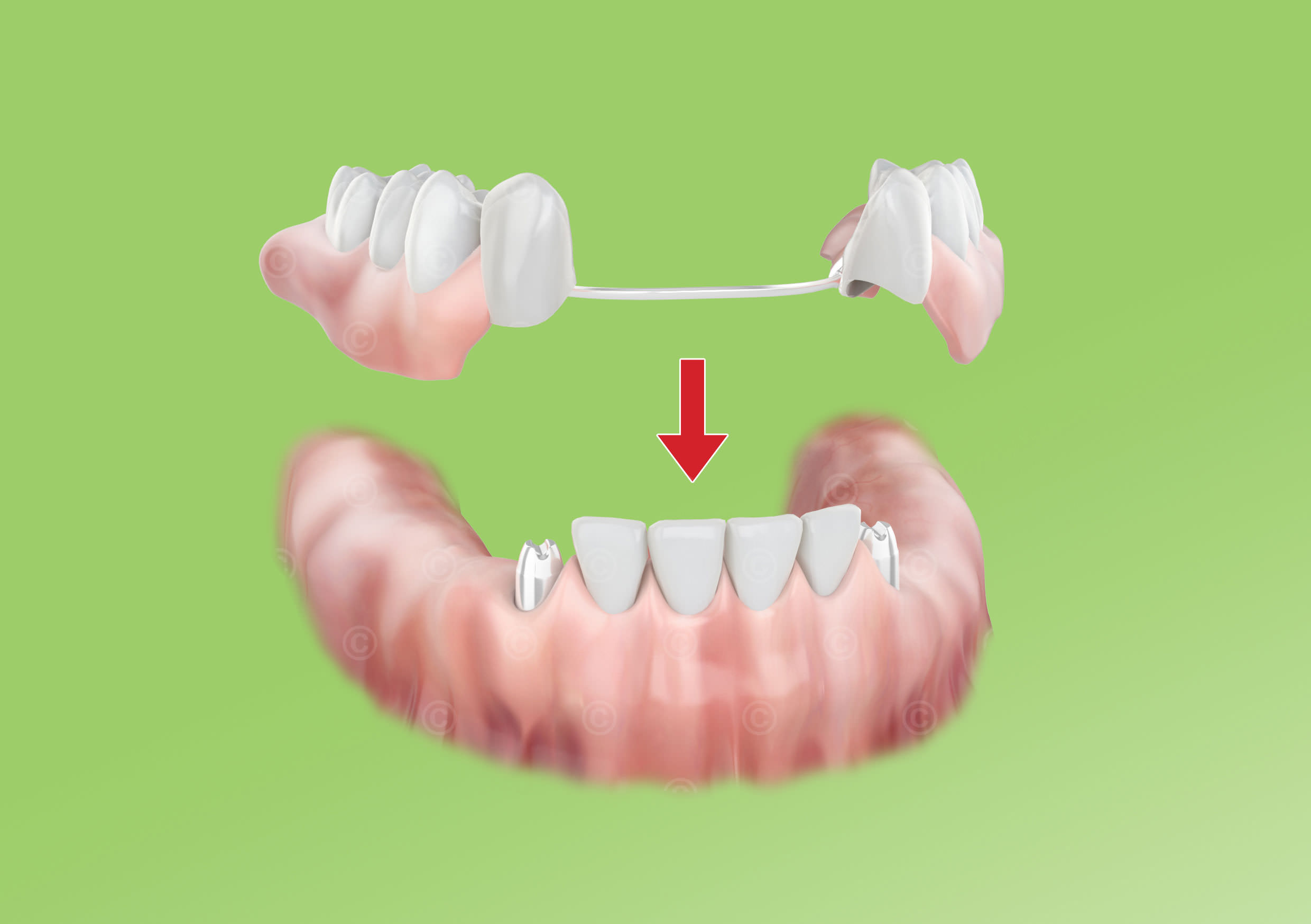Dental Prosthetics | Everything About Types and Applications
What Are Dental Therapeutic Prosthetics?
Dental therapeutic prosthetics are artificial devices designed to restore missing teeth, damaged parts of teeth, or soft and hard structures of the mouth. These prosthetics are divided into two main categories:
- Fixed Prosthetics: Includes crowns, bridges, and implants, which are attached to the teeth or jawbone.
- Removable Prosthetics: Includes complete dentures and partial dentures, which patients can easily remove from their mouths.
These prosthetics not only restore chewing and speaking functions but also rebuild the natural appearance of teeth.

Appointment Booking

Types of Dental Therapeutic Prosthetics
Fixed Prosthetics
- Tooth Crown (Crown):
Crowns are used to cover and protect damaged or weakened teeth. - Dental Bridge (Bridge):
Bridges fill the gap between missing teeth by relying on adjacent teeth. - Dental Implant (Dental Implant):
Implants are titanium screws placed in the jawbone that act as a base for crowns or bridges.
- Tooth Crown (Crown):
Removable Prosthetics
- Complete Dentures:
Designed for patients who have lost all their teeth. - Partial Dentures:
Designed to replace a few missing teeth and are attached to natural teeth with clasps.
- Complete Dentures:
Specialized Prosthetics
- Overdenture:
A type of denture placed over implants or remaining teeth. - Temporary Prosthetics:
Designed for short-term use after surgeries or dental treatments.
- Overdenture:
Materials Used in Dental Therapeutic Prosthetics
Dental prosthetics are made from various materials, each offering unique advantages and characteristics:
Ceramic:
Natural appearance and high transparency, ideal for front teeth.Metals (such as titanium and gold):
High durability and resistance to pressure, suitable for molars.Acrylic Resin:
Lightweight and cost-effective, commonly used in removable prosthetics.Polymers and Composites:
A combination of aesthetics and strength.
Material selection is based on the patient’s needs, tooth location, and budget.

Advantages of Dental Therapeutic Prosthetics
Dental therapeutic prosthetics offer numerous benefits, including:
Restoring Chewing and Speaking Functions:
Prosthetics help patients chew food properly and speak comfortably.Improving Appearance and Confidence:
Restoring missing teeth enhances the smile and boosts self-confidence.Preserving Jawbone Structure:
Fixed prosthetics like implants prevent jawbone deterioration.Preventing Movement of Remaining Teeth:
Prosthetics prevent adjacent teeth from shifting or tilting.

Challenges and Limitations of Dental Therapeutic Prosthetics
Despite their numerous benefits, dental therapeutic prosthetics may come with certain challenges:
Maintenance and Care Requirements:
Removable prosthetics require regular cleaning, and fixed prosthetics need periodic check-ups.Risk of Infection or Sensitivity:
Poor oral hygiene can lead to infections or sensitivity to prosthetic materials.High Costs:
Some prosthetics, such as implants, can be expensive.Lengthy Treatment Duration:
Procedures like dental implants may take several months to complete.
Essential Care for Dental Therapeutic Prosthetics
To increase the lifespan of prosthetics and prevent potential issues, the following care measures are necessary:
Maintain Oral Hygiene:
Brush and floss regularly.Clean Removable Prosthetics:
Use specialized solutions to clean prosthetics.Regular Dental Visits:
Check the condition of prosthetics and make necessary adjustments.Avoid Harmful Habits:
Avoid nail-biting or using teeth to open objects.
Who Are Dental Therapeutic Prosthetics Suitable For?
Dental therapeutic prosthetics are suitable for individuals who:
- Have lost one or more teeth.
- Seek to improve the appearance and functionality of their teeth.
- Have sufficient bone density for implants (if necessary).
- Can maintain proper oral hygiene.
Cost of Dental Therapeutic Prosthetics
The cost of therapeutic prosthetics varies depending on the type, materials used, and treatment complexity:
- Removable Prosthetics: Generally less expensive than fixed prosthetics.
- Dental Implants: One of the most expensive options but offers high durability and functionality.
- Crowns and Bridges: Have moderate costs, which vary based on the number of treated teeth.

